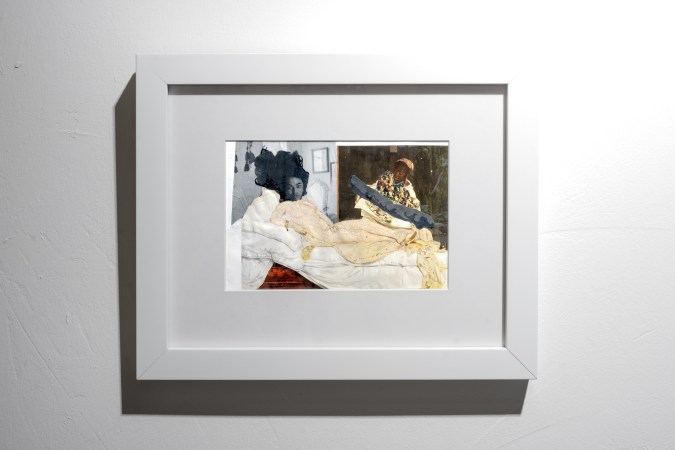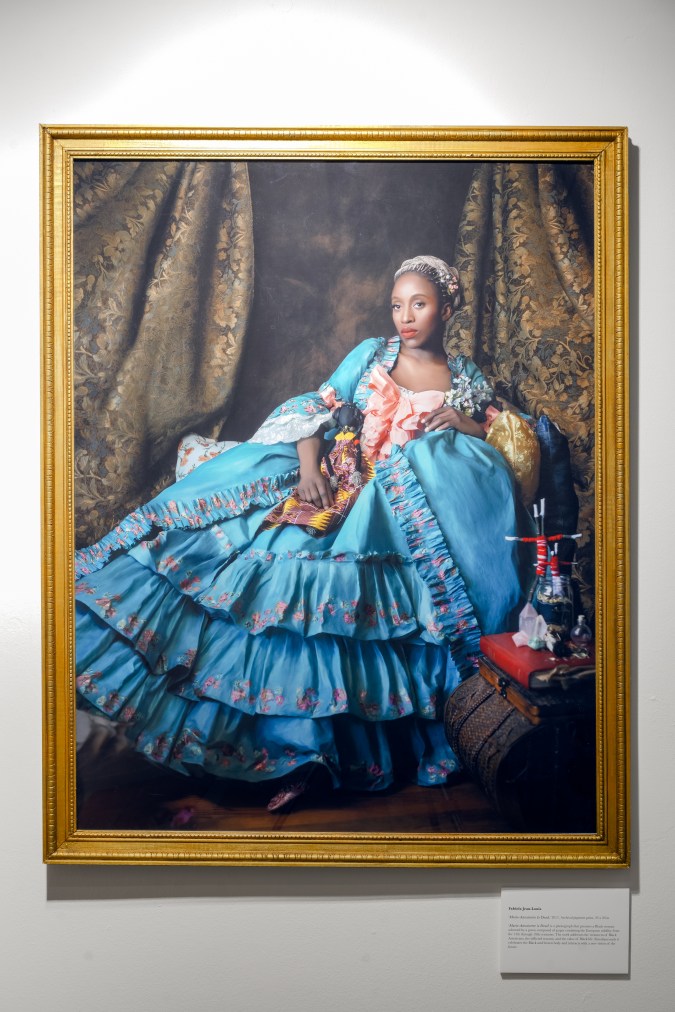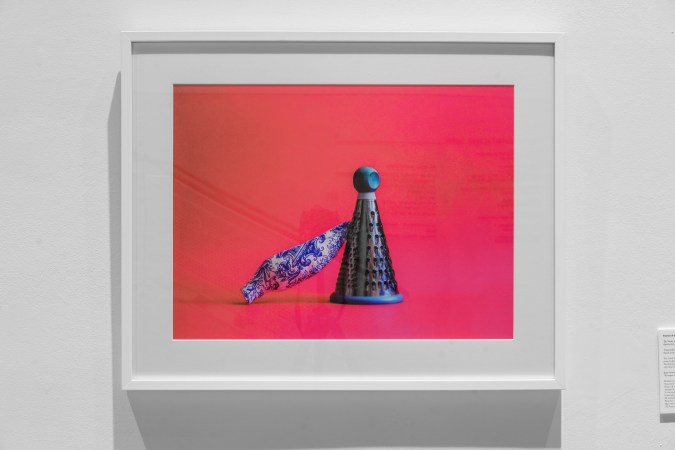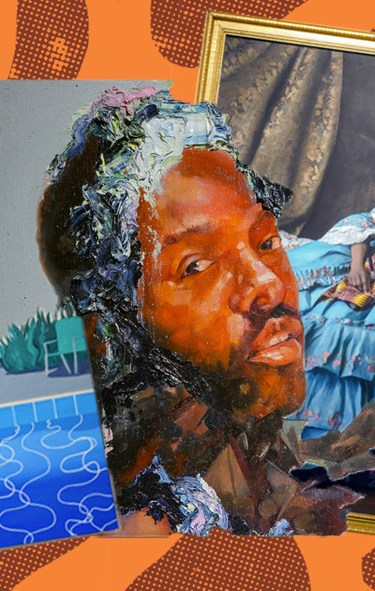If you take a stroll through the most popular art museums, such as the Louvre or the Metropolitan Museum of Art, one thing is blatantly clear: the immense erasure of Black art and artists — even more of the Afro-Latino experience, which is one that can not be detailed in a singular narrative. The same is overwhelmingly true in niche Latino art spaces as well. Although Black artists exist in Latin America and its diaspora, their presence is rarely reflected in mainstream galleries and exhibits. Not unlike other faucets of life and culture, Black references in Latino art tend to be dismissed.
“I wanted it to be a celebration.”
New York University’s art and culture initiative The Latinx Project is challenging this through its exhibition Afro Syncretic, a collection honoring the African roots of many Latinos and Latin Americans. It showcases African-rooted work by nine Latino artists, highlighting food, music and religious practices of the African diaspora.
“I wanted it to be a celebration that not only talks about our colonial past but also talks about the beautiful culture that we were able to create out of the struggle, out of this traumatic experience that our ancestors went through and what we are still going through,” curator Yelaine Rodriguez tells Remezcla. “In the Latinx community, you have this separation between white Latinx and Afro-Latinx, and Afro-Latinx not getting proper platforms to have a voice at the table.”

Collectively, Rodriguez, a New York-based Dominican-American interdisciplinary artist, and the nine other creatives featured are critically analyzing society’s erasure of Black culture. Strolling through the exhibition at NYU’s The King Juan Carlos I of Spain Center, visitors are drawn to artistic discourse that details Afro-diasporic traditions and culture created by Patricia Encarnacion, Fabiola Jean Louis, Lucia Hierro, Tiffany Alfonseca, Joiri Minaya, Carlos Martiel, David Antonio Cruz, Melissa Misla and Elia Alba.

“I want [viewers] to feel at home, and I want them to be able to see the similarity across the work and across cultures. That there’s the familiarity of this, of our history and how we’re unifying as a race,” Rodriguez says.
“Afro-Latinxs are diverse and a beautiful dimension of human history.”
Protesting against Black erasure and discrimination through art is not new for Rodriguez. In 2015, when the Dominican Republic stripped citizenship from thousands of Dominicans of Haitian descent, she expressed her activism through art with the exhibition La Lucha: Dominican Republic and Haiti, One Island.” The show promoted Dominican and Haitian artists while creating space for collaboration and healing.
“I started observing how Haitians were being treated around my surroundings,” Rodriguez says.

Born and raised in the Bronx, the artist grew up in between cultures. As the daughter of immigrants in the United States, she observed the countless human rights violations and discrimination immigrants and their descendants experienced. This is best exemplified in one of her most lasting memories. During a public transportation ride in the Dominican Republic in her younger years, she sat in a public car with her mother and a Haitian immigrant. The woman, who Rodriguez remembers having a thick accent, politely informed the chauffeur on where to stop. In response, he told the elder, “If you want to be in the Dominican Republic, you need to learn how to speak Spanish.” The moment immediately took her back to a time in New York City when her sister asked a white man for directions and was shushed with the remark, “I don’t speak Spanish.”

Creating space for the Black narrative also fuels Haitian-born interdisciplinary artist Fabiola Jean Louis, who rewrites history by reimagining Black women in past centuries as royalty in Europe and displaying them in glamorous paper gowns and wigs, as in her archival pigment print Marie-Antoinette is Dead.
“As artists, we have a great responsibility to respond to our environments.”
“My goal is to create or capture images that tell a story because I consider myself a storyteller and a visual activist,” Jean Louis says. “I’ve always believed that art has a purpose and, as artists, we have a great responsibility to respond to our environments and to respond to things that do not serve us, our communities and our people. I believe that that’s what this exhibition does. It purposely interrupts old narratives, from history to the present. For me, it’s doing the job that art should do.”

Similarly, Encarnacion uses a series of quotidian artifacts, like rum bottles, avocado, sugar canes and yuca, to recontextualize the items giving them new meanings. Inspired by the late activist Juan Antonio Alix’s poem El Negro Detrás de la Oreja, her photograph, of the same name, honors the meaning of the verse and criticism of racial prejudice.

“He expresses his concerns on how Dominican people would work so hard to deny their African roots, and it doesn’t matter how hard we try to deny it, [because] it’s just obvious that we have blackness in each of us,” Encarnacion tells Remezcla. ”I found it fascinating how still today we deal with the same social phenomenon, so I wanted to create a series that claims and embraces the Afro presence in the Dominican culture.”
“It’s extremely important that we start proper and concrete documentation of our culture.”
Exhibitions like Afro Syncretic are important in the discourse of Black Latinos claiming spaces that have been consistently denied to them, while also decolonizing through art. Latinidad is not a monolith, and there is an absence of Black Latino representation and social criticism in art spaces. With exhibitions like Art Syncretic, viewers are presented with the culture and lives of Afro descendants.

“Afro-Latinxs are diverse and a beautiful dimension of human history that has been forgotten and neglected. It’s extremely important that we start proper and concrete documentation of our culture and who we are as part of society,” Encarnacion says.
Afro Syncretic is currently running at NYU’s The King Juan Carlos I of Spain Center on weekdays up until March.




